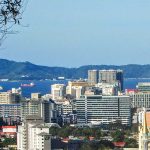Introduction
Retiring abroad is much the same as embarking on a great adventure. New experiences, new cultures, and new landscapes are only the tip of it all. Moving into a different country for retirement raises various concerns and issues that every retiree needs to keep in mind. Following the advice of the government will go a long way in ensuring your transition is smooth and successful. The blog post will cover all of the essential steps and major considerations for British people seeking to retire to another country, covering the legal requirements, financial management, and healthcare so that you are able to make the most of your retirement abroad.
Understanding the Legal Requirements
Understand and comply first with the legal requirements at your destination. Each country has its visa and residency regulations and these are obligatory for retirees. The UK government gives guidance on these matters through its official resources, including the Foreign, Commonwealth & Development Office.
Before making any plans, research the specific visa requirements for retirees in your target country. While some countries offer retirement visas or, more commonly, a residence permit designed for retirees, others may have more general long-term stay options. Ensure that you are eligible for all of these criteria and be prepared with relevant supporting documents for your application.
Finally, know the other legal requirements that you will have to comply with, such as registration with authorities, issuance of local identification cards, and all other local laws. Knowing and complying with these will save you from troubles with the law and will make your retirement hassle-free.
Financial Planning
Of importance when retiring abroad is managing your finances. Government advice on financial matters can offer very valuable assistance in dealing with the intricacies of managing one’s money in a new country. Important considerations would include the implications for currency exchange, taxation, and management of pensions.
When you move to another country, you will need to consider currency exchange and fluctuating exchange rates with your money. Opening a local bank account is highly advisable for general expenses, so you will not have to exchange frequently. You may also need to find ways to transfer larger amounts of money—for example, international money transfer services, which at times give very competitive rates and even lower fees compared to traditional bank transfers.
Another critical factor to consider is taxation. Different countries have different taxation rules; hence you ought to understand how your retirement income and assets will be taxed in your new country of residence. The UK government has tools to help you know more about international tax obligations, and consulting a tax advisor who deals with expatriate finances will give you tailor-made advice on your situation.
Health Care Considerations
Healthcare in retirement is a significant issue, and government advice on this matter should be listened to to ensure that you are correctly set up to have access to the right medical services. Both the quality and cost of healthcare vary immensely from one country to another; consequently, it is imperative to investigate the healthcare system in your chosen destination.
Some have public systems into which residents may join; others are covered by private health insurance. Knowing how it works in your new country, and getting adequate health insurance, is extremely important. The UK government gives tips on healthcare for expats so that you know about reciprocal healthcare agreements and ways of obtaining private insurance.
Before you move, make sure that you will have continued access to any medications and medical treatments you may require. With ongoing health problems, discuss how to plan for continuity of care and related prescriptions or records you may need with your healthcare provider. Addressing health care considerations in advance, you can avoid disruptions to your medical care and maintain your well-being abroad.
Preparing for the Move
There are many logistically connected decisions involved in an overseas move. Taking heed of governmental advice on practical matters can help you control the process effectively and minimize stress.
Start with a checklist of things to do before the relocation. These include bank notifications and change-of-address notifications to relevant institutions. Other ways to set yourself up for success include buying comprehensive travel insurance, which could really help if something happens at the last minute with your move.
It’s also good to get familiar with the local customs and regulations in your new country. Understanding the cultural norms, services locally available, and some very practical aspects like transport may help you settle more easily into your new environment. Getting involved with expat communities will be rewarding in seeking useful tips and advice from other retirees who shall help in your transition period.
Building a Support Network
Put a support network in place, and it will make the experience of retirement all the more rewarding in your new country. Getting engaged with fellow expats and locals can provide you with social support, practical advice, and community.
Look at local expat groups, clubs, and organizations specifically for retirees and/or expatriates. They are also convenient in organizing social activities, providing resources, and networking. It is through involvement in such communities that you get to make new friends, integrate into a new environment, and feel more at home.
Also, participating in local activities and being able to see the area would help in making your acquaintance with others. Be open to local culture, customs, and traditions and avail yourself opportunities of for learning them.
Knowing and Keeping Abreast of What Is Happening
Once settled in your new country, continue to be informed about changes to government regulations and local conditions that could impact your retirement. Subscribe to official source updates from your home country’s embassy or consulate, and be ready to keep tuned in with local news and community resources.
Keeping up to date with government advice and updates can keep you informed of any changes that may impact your visa situation, tax, or healthcare. This will make you compliant with the local regulations and then move smoothly towards a more enjoyable retirement abroad.
Conclusionodyn of an experience is key to any traveler or those thinking of living in a foreign country.
If one is to have a good and totally stress-free retirement abroad, follow the government’s advice. Be aware of the legal requirements, manage your finance and health care concerns, and be prepared for the move. Having a support network in place, accessing information from time to time, and embracing the local culture will further enhance your retirement experience.
Such careful planning and strict adherence to government guidelines can make a retirement abroad into very fulfilling and rewarding experience in the exploration of new horizons, making memorable moments in any preferred destination.

Ray Brocklesby, the site owner, is a Brit who now lives in the Philippines. He is retired and lives with his wife Weng, Daughter Kristelle, nephews, Harvey and Boknoy, and mother-in-law. Ray also has a son and daughter living in the UK, and a son in New Zealand.













